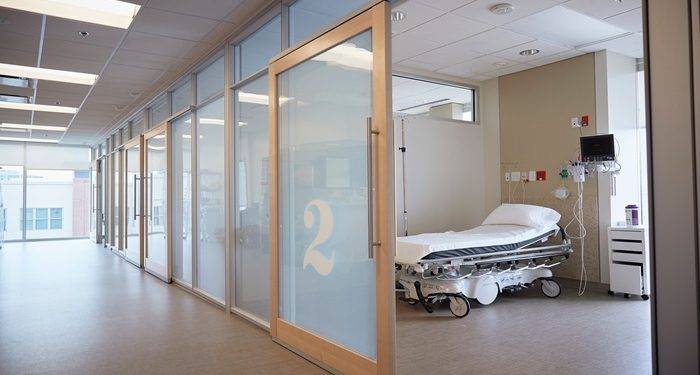No matter how big or how small they are, a hospital is an indispensable part of any community. As a first-time hospital manager, you have the daunting task of ensuring that your facility runs smoothly and provides quality care to patients. Not sure where to start? Don’t worry, we’ve got you covered! Here are eight essential tips for managing a hospital successfully.
Patient Care is Everything
At the core of any hospital is patient care, and as a manager, it should be your top priority. This means constantly monitoring and improving the quality of services provided, as well as ensuring that patient safety is always upheld. Regularly reviewing and updating processes, training staff, and implementing patient feedback are just some ways to improve the overall care provided at your hospital.
Build Strong Teams
A successful hospital requires collaboration between different departments and teams. It’s crucial to foster a culture of teamwork and open communication among staff members to ensure efficient operations and a positive work environment.
One way to make your hospital a great place to work is by creating a positive work culture. This can be achieved by recognizing and appreciating the hard work of your staff, providing opportunities for professional growth and development, and promoting a healthy work-life balance. Encouraging open communication and addressing any issues or concerns promptly can also contribute to a positive work environment.
Invest in Continuous Education and Training
The medical field is constantly evolving, and it’s essential to stay updated with the latest advancements. Investing in continuous education and training for your staff not only improves the quality of care provided but also boosts employee morale and job satisfaction.
Prioritize Effective Communication
In such a fast-paced environment, effective communication is key. Make sure to establish proper channels for communication between all levels of staff, from doctors to janitorial staff. This includes both verbal and written communication, ensuring that important information is shared accurately and efficiently.
One of the smart ways to increase communication within a hospital is by incorporating technology. This can include implementing a secure messaging platform for quick and efficient communication between staff, utilizing electronic health records for accurate patient information sharing, and using telemedicine for remote consultations. Additionally, holding regular team meetings or huddles can also improve communication and keep all staff members updated.
Embrace Technology
Technology has revolutionized the healthcare industry, making processes more efficient and improving patient care. As a hospital manager, it’s crucial to stay current with technological advancements and invest in systems that can streamline operations and enhance patient experience.
Take Care of Your Logistics
From medical supplies to equipment maintenance, managing a hospital also involves overseeing various logistical aspects. Make sure to have efficient processes in place for inventory management, purchasing, and maintenance to keep the hospital running smoothly.
Working with a strong logistics team is crucial for the efficient operation of a hospital. This team, such as someone from ABCO Medical Logistics, is responsible for managing the inventory, purchasing necessary supplies and equipment, and ensuring that everything is in good working condition. As a manager, it’s important to establish clear communication and processes with your logistics team to avoid any delays or shortages that could affect patient care. Regularly reviewing and updating logistics procedures can also help identify areas for improvement and ensure the smooth functioning of the hospital.
Maintain a Strong Financial Management System
Managing a hospital also means managing its finances. It’s essential to have a strong financial management system in place to track expenses, monitor budgets, and ensure the facility’s financial stability. This includes regularly reviewing and updating financial policies, analyzing data to identify areas that need improvement, and effectively managing revenue streams.
Sticking to a budget is crucial for the financial stability and success of any hospital. To ensure this, be sure to regularly review and analyze expenses, track revenue streams, and make adjustments as needed. Utilizing technology such as budgeting software can also help in accurately tracking expenses and identifying areas for improvement. Additionally, involving all staff members in the budget planning process can promote accountability and encourage feasible cost-saving measures throughout the hospital.
Focus on Employee Well-Being
A successful hospital is not just about patient care; it’s also about taking care of your employees. Make sure to provide a healthy work-life balance for your staff, offer support programs for mental health, and prioritize their well-being.
Happy employees are more likely to be engaged and motivated in their work, leading to better patient care. When employees feel supported and appreciated, they are more likely to go above and beyond for their patients. Additionally, a positive work environment can also lead to improved communication and teamwork among staff members, ultimately resulting in a better overall experience for patients. By prioritizing employee well-being, you are not only fostering a healthier workplace but also creating a ripple effect that positively impacts the quality of care provided at your hospital.
As a first-time hospital manager, it’s normal to feel overwhelmed by the responsibilities that come with the role. However, by prioritizing patient care, building strong teams, investing in education and technology, maintaining effective communication, and focusing on employee well-being and infection control, you can effectively manage your facility and ensure its success. Good luck out there!








